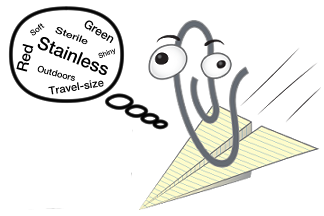Whenever we create content on CrewMachine we are provided with keywords. This article explains what keywords are, how they are used, why they are important and answers some keyword FAQs that PMs often get asked.
What is a Keyword?
A keyword is a term used in digital marketing to describe a word or a group of words an Internet user uses to perform a search in a search engine or search bar. In an SEO strategy, keywords are very important and should be the core of any copy written for the web (present in the content, titles and SEO elements). Keywords should be developed and selected carefully before launching content online on both web and mobile platforms.
Importance of Keywords in SEO
Keywords are important because they tell search engines about the content of a website’s page.
Optimizing content with the proper keywords will help a website rank higher, faster and gain more search engine traffic.
Google and other search engines have over 200 ranking factors that can either take a website to the first page of a search engine, or can throw it somewhere down, where no one can see it.
Not all the factors carry equal importance but some of them really do and keywords are one that plays a major role in ranking a website.
How many SEO keywords should I use?
For each page, you want to target one primary keyword. It’s okay to target three or even five keywords on one page, but choose one to be the primary. Any secondary keywords can help shape your content. The number of keywords can be increased or decreased depending on the content volume.
Different Types Of Keywords For Paid Search
- Broad Keywords – A keyword and variants of that keyword. Example hat, sun hat, blue hat, summer hat
- Broad Match Keywords – Similar to broad keywords
- Phrase Keywords – Two or more keywords used together to make a phrase. Example Buy blue hats, does a blue hat protect from the sun?
- Exact Keywords – Exact words or phrases. Example Coffee, Hat, Sunscreen
Different Types of SEO Keywords
Different types of SEO keywords:
- Branded Keyword – Keywords that include a specific brand. Example Nike shoes
- Non Branded Keywords – Keywords that are not attached to a specific brand. Example tennis shoes
- Seed Words – Short, one or two words without modifiers. Example shoes
- Page-Specific Keyword – Keywords that are only specific to a certain page. Example Nike Air Max
- Primary Keyword – The main word or phrase a page wants to rank for. Example the name of the web page or article (purchase a laptop online)
- Secondary Keyword – Similar to a primary keyword but with a little more detail. Example purchase a Lenovo laptop online
- Transactional keywords – Transactional keywords are keywords or keyword phrases potential customers use to find the services or product they are looking to buy. Transactional keyword examples: Buy, purchase, deal, discount, cheapest, for sale, where to buy, coupon
- Long-Tail Keyword – Longer, more defined keywords. Example Cheap Lenovo laptops
- LSI Keywords – LSI keywords are words and phrases that Google sees as semantically-related to a topic. At least according to many in the SEO community. If you’re talking about cars, then LSI keywords might be automobile, engine, road, tires, vehicle, and automatic transmission.
Keyword FAQs
No matter what project it is, we always get a lot of questions about keywords. So here’s some answers to the ones we see the most.
Do I have to use all the keywords?
It’s a good idea to try and use all the keywords at least once. But, it’s also important to not keyword stuff. Most projects will define a keyword density in the Creative Brief, so be sure to check there.
How should I use the keywords?
Again, check the Creative Brief for specifics. But a general rule of thumb is to use the Primary Keyword in the meta title and description, page title if there is one and the first paragraph. Then work in the secondary keyword and after that, one or two of the tertiary keywords where they fit nicely. (Remember writing should always flow and a reader should not be able to tell that specific words or phrases are keywords)
What does AMS mean?
AMS means Average Monthly Search and is the average number of times people have searched for a specific (exact) keyword or phrase.
Can I change keywords?
Again, project specific, so check the Creative Brief or ask your PM. However, a general rule of thumb is that you can alter keywords for:
- Spelling
- Grammar
- Capitalization
- To add stop words (it, and, to, in, etc)
These keywords don’t fit – What do I do?
Occasionally you’ll find that you have been provided with keywords that don’t really fit the page, or the content being created. When this happens, you should not blindly write and awkwardly work in the keywords. But, what you should do will depend on the projects. Your options are:
- Return the item to Keyword Research with feedback in the Researcher Feedback
- section as to why you are returning it.
- Contact your PM on Slack to have them replace the keywords
Check the Creative brief to see what the policy is on your project, and if you aren’t sure, ask your PM in slack.

